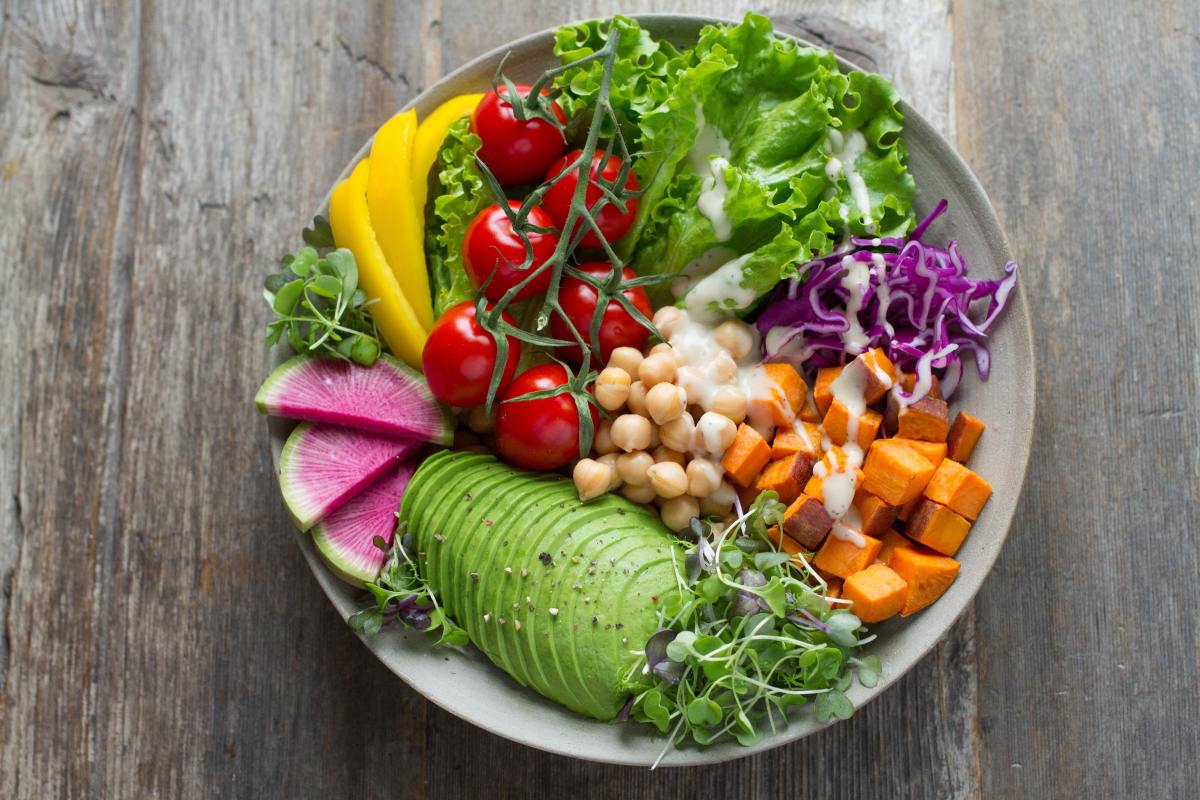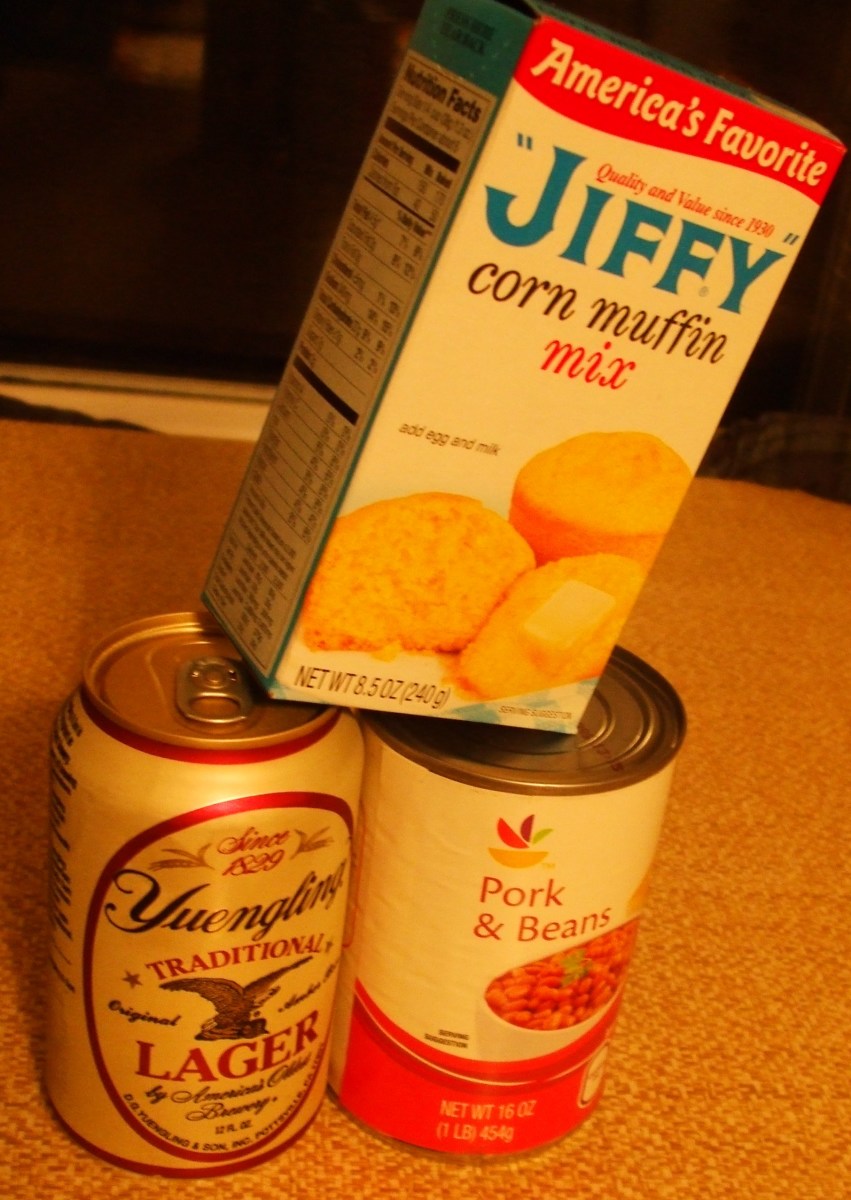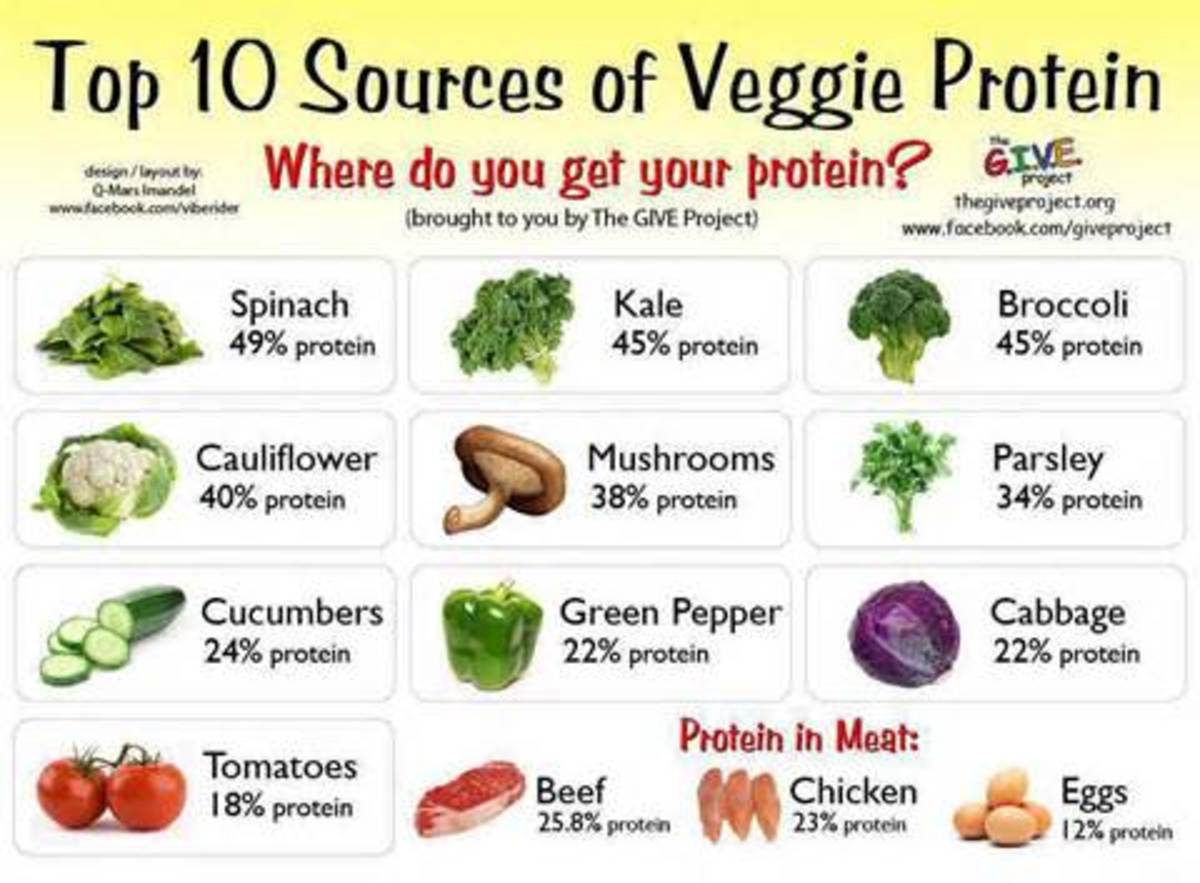Tips for New Vegetarians
Getting Started
You go to the grocery store, not a single item containing meat on your list. Instead, there are things like "tofu" and "seitan" written down, though you don't even know if they're edible. You spend 30 minutes in front of the eggs while trying to figure out if eating the whites is ethical or not. On the way to the cash register, you grab a can of minestrone soup, not realizing that it is made with beef broth and bacon until you get home.
Welcome to the world of vegetarianism. We have all made these mistakes, so do not fret. Whether you have already started your animal-protein free life or are curious about where to start, here are some tips I have curated for you that are based on personal experiences and research.
Tip 1: Do Your Research
Be clear in your motivation. You don’t have to write a thesis paper on it, but you should be aware of what you’re getting yourself into--as with anything. Sometimes, the body reacts to an abrupt shift in diet with the utmost displeasure. How has your body reacted to stress or dramatic changes prior to this one?
It is important is to ask yourself what kind of vegetarian you want to be. Do you want to include fish in your diet? What about diary and eggs? Do you know how to make vegetarian meals? What about food intolerances or allergies? A vegetarian allergic to soy would be hard pressed to find suitable meat-replacements.
Check out online vegetarian magazines for recipes and other living tips. My favorite is Vegetarian Times.
I also enlisted the following books for educational purposes. They might help you as well.

If you are a nutrition nerd like I am or find biochemistry and physiology fascinating then the next book may be more your speed. Because it is a college-level textbook, it is more of an investment than The New Becoming Vegetarian, but the educational value is priceless.
2. Choose Your Path
By that I mean how you're going to transition into this change of diet.
There are two paths:
- Cold Tofurkey (86 all the meat)
- Weening off of animals slowly
Personal experiences lead me to believe that weening off certain proteins was easier than others. Never having truly liked red meat, I was able to write off burgers immediately. Plus, I had access to non-meat variations (black bean, portabella mushrooms, and quinoa burgers to name a few). Seafood was a bit more challenging because I enjoyed it. Yet somehow, that too left my diet the more comfortable I became with soy and other alternatives.
For some people, swearing off every single food that came from something with a face is no issue. Others can't imagine life without chicken parmigana and so assume vegetarianism is impossible. What I say is this: Decide what works best for you and your lifestyle. This is your decision. If you want to start slow, try Meatless Mondays first then take it from there. Don’t rush ahead and crash into a glass door, savvy?
2.5. Mistakes Will Happen
Tying so closely into number 2 I couldn't call it third is admitting that mistakes will happen. There are going to be vexing moments where you might be craving a burger or you’re at a social gathering where there is nothing devoid of bacon. Not even the ice cream. It’s okay to cave sometimes! Don’t beat yourself up for accidentally swallowing a chunk of sausage you find on your pizza. I’ve done it, and you know what? Getting overly upset over something unavoidable completely ruined the moment for me, even though everything was fine. Laugh it off instead of freaking out. You’re not going to die.
Keep in mind that many family members and friends might also forget about your dietary choice. If they are not joining you in this transition, they may have just as hard a time coping with it as you do. Don’t get agitated when visiting relatives ask how you like your chicken a month into your new diet or when your friend asks if you want to go get sushi. Questions like this aren't meant to goad you. Gently remind them that you’re not a meat eater anymore and will be bringing your own protein to the party or have an alternative restaurant in mind. Trust me, they will thank you for it.
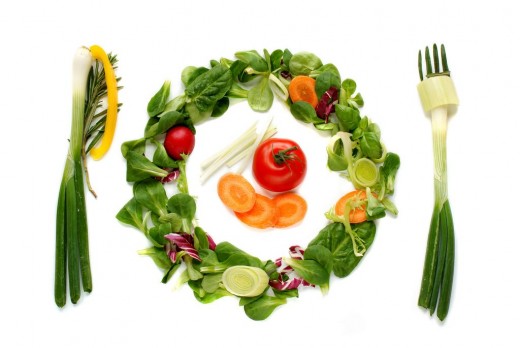
3. Accept that most of your favorite chain restaurants have nothing suitable for vegetarians or vegans on their menu.
Certain exemptions notwithstanding, the popular chains rarely, if ever, carry vegetarian friendly items. I realized early on that just because something doesn't include a meat straight in the name may still be made with animal fats or broths, so be careful. Potato soup, for one, is often made with itty-bitty bacon bits that go unlisted in the menu description.
When I worked at Applebee’s as wait-staff, a fellow vegetarian co-worker was quite fond of the split pea soup. Until our manager revealed that the base was chicken broth. My co-worker immediately stormed off to the bathroom. However, a trick I learned when working in the restaurant field is this: if you can find a meal option loaded with vegetables and won't require a ridiculous amount of effort for the cooks to remove the animal protein (like vegetable smothered chicken on steak, for example), ask your server to 86/nix the meat. Neither the chefs nor the server will mind. Salads are always your safest option, because the meat or seafood is usually dumped right on top. But if you don’t want salad, see what other entrée can be customized prior to settling on roughage.
4. Prepare yourself for silly questions.
- How do you get your protein?
- Do you still eat animal crackers and Goldfish?
- Why don't you eat fish? It's not meat!
- Why don't you like eggs? They're not meat!
Or insensitive things like:
- It's chicken-flavored. Not real chicken.
- Pick the sausage out of the sauce then.
- How do you live without steak? Or bacon?
Remind them of this:
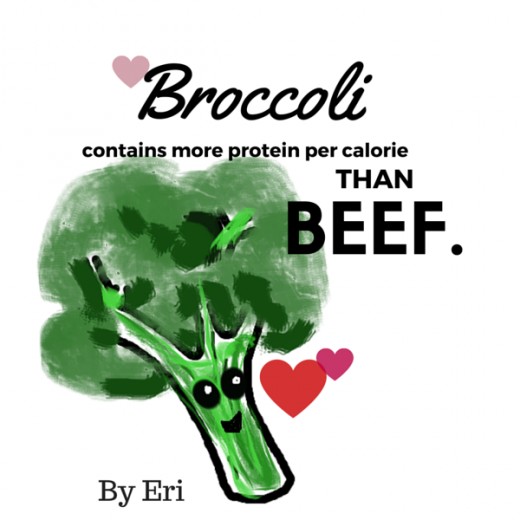
5. Vegetarianism doesn't automatically equal healthy.
You’re still going to have to be conscious about what you eat. A muffin is vegetarian, but that doesn’t make it safer for you than a McDonald’s quarter-pounder. Just because those chips you pick up are labeled ‘natural’ and ‘made with real vegetables,’ doesn’t minimize the fact that they are still soaked in grease and loaded with salt. Fried tofu is indeed a vegetarian option, but it is no better (in fact worse) for you than french fries. Or take a look at the nutritional breakdown of eggplant parmigana compared to chicken.
Be careful of super processed white breads and pastas, non-organic soy, processed cheeses, and meat-alternative hot dogs that have more chemicals than a science lab (Epyk.com).
As I mentioned before, having a fundamental understanding of basic nutrition will make your lifestyle switch to vegetarianism easier. You won't have to worry about cravings, odd imbalances, and nutritional overload if you know which foods contain what nutrients. Also, you have to be open-minded. You might cringe at the thought of cooking with organic tofu, but you can use it one hundred different ways. Play around, get creative, and try new things. Use this change in your diet as a doorway to discovering your new favorite food.
Final Words
The reasons for transitioning over to a meatless diet are many. For me, it was because I love animals and did not feel any need to consume meat. Whether you are aiming for a natural, sustainable lifestyle, want to get healthier, live on a budget, or simply try something new recipes, vegetarianism is a less daunting switch than it appears. Remember to stay true to your motivations, take it slowly, and accept that it won't always be easy.
I wish you all the luck on your endeavors. Please feel free to leave questions and comments. I'm more than happy to give advice! As always, thank you for the read.

